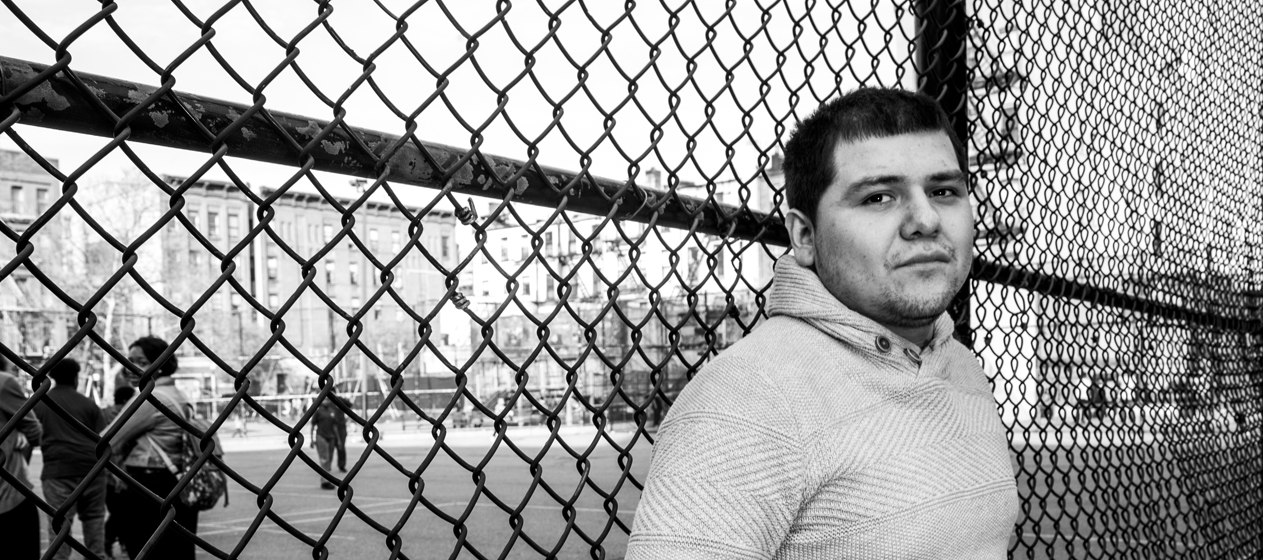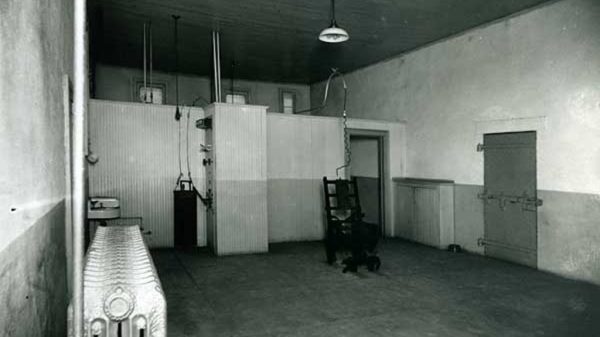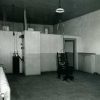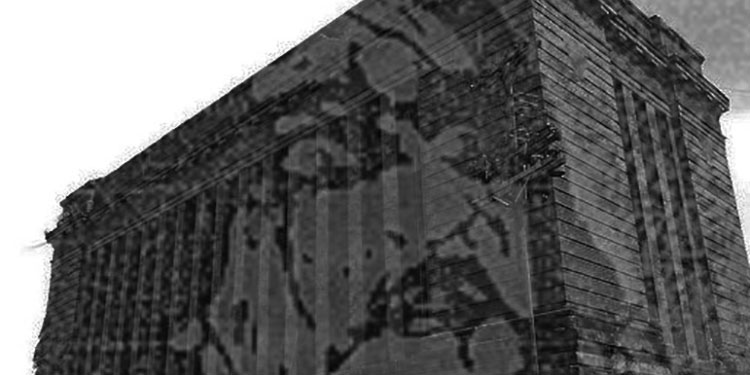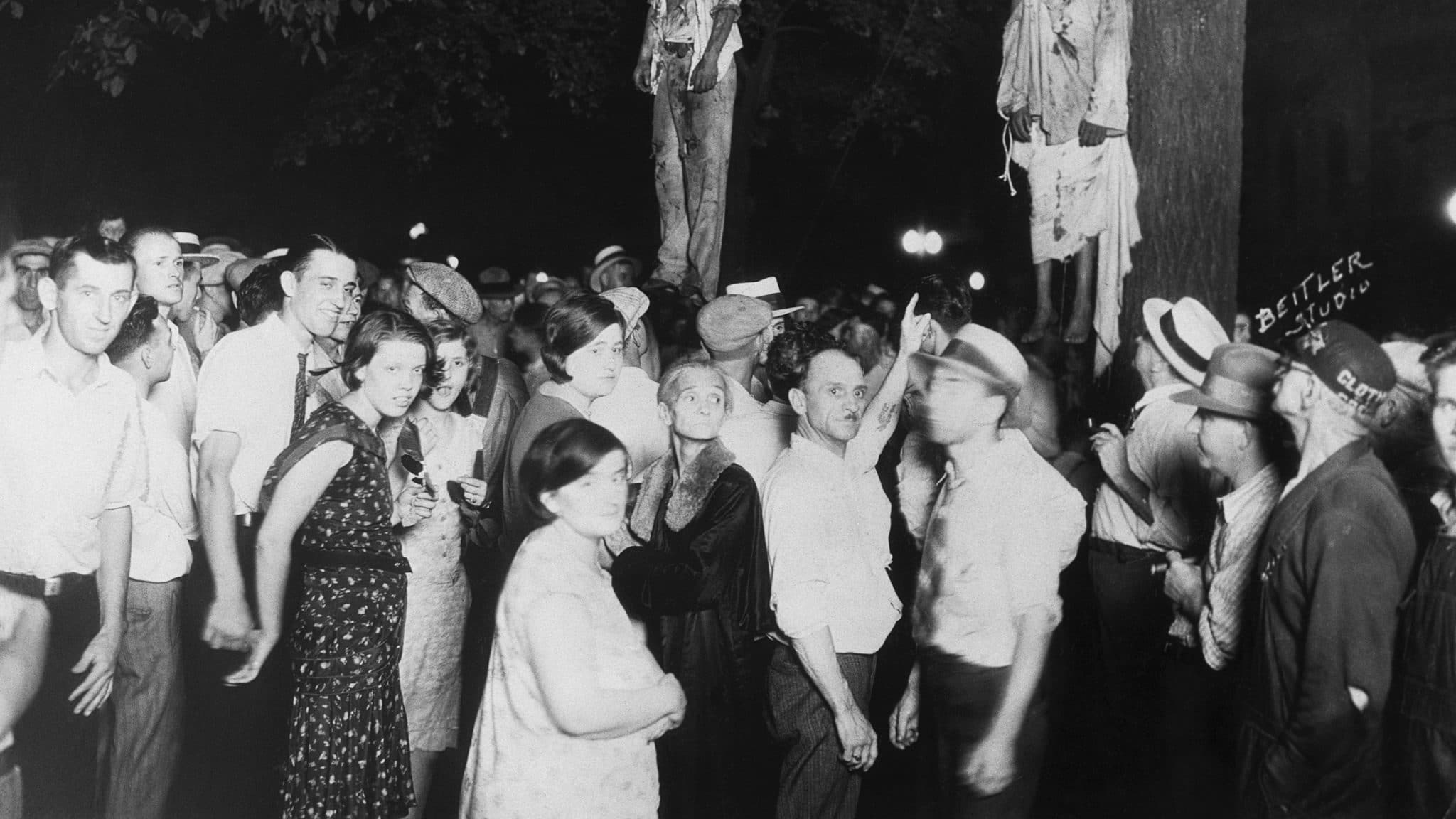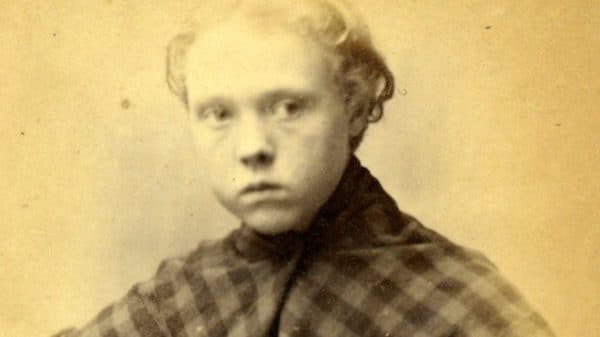I’ve always been intrigued by prisons. Not so much the brick and mortar foundations that composed these institutions, but the lives that are carried out – and sometimes extinguished – within the confines of these state and corporate-sponsored buildings. From the daily operations, to the social hierarchy built as a necessary means of control, prison is a world unto itself. And while in my younger years I had the lovely chance to be a guest at a county jail – a stay that woke my ignorant ass up to where my life was headed – not everyone is so fortunate. Sometimes people make mistakes. A quick, reactionary decision that ultimately costs them not just their freedom, but their friends and loved ones as well. Prison scars you. It embeds its way of life and culture into a person. While just about anyone can walk through its gates because of a crime, not everyone can make it out, or even through their sentence. It’s a place built upon the criminal code, where the rules of the outside world do not apply – where a person is no longer considered a human, they are simply a number.
Rikers Island is sandwiched between Queens and The Bronx, just above La Guardia airport, here in New York City. One can see its sprawling compound on certain flights out, but for most people, no thought is given to what goes on behind the walls; the lives that are shuffled through while awaiting sentencing, the various insufferable horrors that are committed and sometimes documented in local and national news outlets, which only end up getting buried and forgotten about just as quickly as they occurred. To us, the law-abiding citizens of America, this is a place for people who deserve to be there. A place we’d rather not think about. The American Prison system is, in all ways, a forgotten and broken piece of our society. To think otherwise would be foolish, ignorant and plain inhumane. But that’s just what the vast majority of us do. Unless you’ve done time or had a loved one incarcerated, the emotional gambit that wreaks havoc on the lives of those affected is almost unimaginable.
I met Rodrigo about three years ago through various friends who I had worked with at an old job. Our first conversations were based around tattoos, and essentially bar-counter talk. The type of discussions that never got too serious and were, to a degree, small chit-chat. Over the course of hanging out, I came to find out that he had recently served a sentence in Rikers Island and two other prisons in upstate New York. As our time together and familiarity with one another increased, I approached the subject about his time served. Rodrigo, for the most part, is soft-spoken and reserved. A person that watches those around him carefully. His smile is a bit aloof, one that a troublemaker bears with an impish charm. And I’m still not sure to this day if it’s because of his nature, or if it’s what going to prison has done to him, but it always struck me as conveying a sense of “I’ve seen things.”
After some time, I contacted him about doing an interview for CVLT Nation. I half expected him to turn the notion down, but to my surprise, he was incredibly open to the idea. So, alongside my partner in crime and wizard of photography Nathaniel Shannon, we hiked our way uptown into Harlem, a neighborhood steeped in history, culture, violence and the looming threat of being swallowed up by rapid gentrification. Over the course of two hours, while sitting on the front steps of apartment, witnessing spring finally being ushered into this urban sprawl, Rodrigo walked us through the three years of his life spent in the American prison system. From the crime he committed, to life inside and beyond.
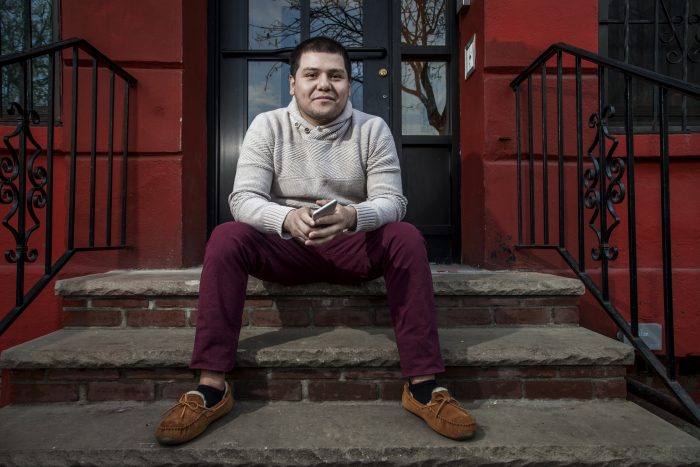
Photo by Nathaniel Shannon
Perhaps the easiest way to began this interview is to ask the hardest question first, the one that’ll set the tone for what is to follow. You arrived at the infamous Rikers Island jail on January 3rd, 2011. And while I know this going to maybe bring up some painful memories, how did you end up there?
Rodrigo: Well, I got caught with an attempted murder case. I was seventeen years old and hanging out on 115th Street around Park Avenue. It was all gang-related, and the guy got shot close to the heart at a baptism party. And yeah, I was the one who shot him. The guy and I had already had problems. He was in another gang. At first it was just fighting. But at one point he did shoot at me, about a year before that. For me, that was him crossing the line. He took it from fighting to a whole new level. When I went to the party, it was pure luck that he showed up. As I left the there, some people called to let me know where he was. I went and grabbed my gun, walked up to the car and shot him. After it happened, the ambulance showed up right away and from what I was told, that’s the only reason he survived. I guess he was in the hospital for two weeks.
Was there any retaliation for the shooting?
Rodrigo: Then? No. But now, maybe. People don’t forget. And people especially don’t forget shit like that. He’s from The Bronx, so I haven’t run into him since coming home from prison. It’s just a matter of time, really. But I’ve made my peace with it. Sooner or later, he might come back and I’ll see him. If it happens, hopefully no one that I love will be around.
How did you originally become involved with the gang you were in at the time?
Rodrigo: At the time I was growing up, everything revolved around race. I was about eleven or twelve when I joined. Back then, a lot of the Mexicans in the neighborhood were picked on by the African-Americans. You’d wake up and go to school and see a pool of blood on the sidewalk from someone being jumped or robbed. So, a lot of it was about protection. But then it turns into something else. The drugs and money. That feeling of being a part of something, I guess.
What were the events that led up to you being arrested for the shooting?
Rodrigo: I came to see my mother in Harlem. My phone had broken, so I had no clue that she knew what had happened. When I showed up, she told me that the police had come by and were looking for me. That next morning, around six AM, they showed up again and found me there. I had no clue what they got me on. There was a lot of shit going on around here. I had no idea it was for that.
Had it sunk it yet how serious of trouble you were in?
Rodrigo: Actually, no. When they picked me up, they didn’t say anything about the shooting. They actually told me that it was for a ticket, or some other bullshit like that.
New York City had on the books a population of 8.2 million people at the time. Among all these various cultures, religions and lifestyles, Rikers has always had a reputation for being a pit of hell. It was notorious – and that’s using a light term to describe it. As a native of New York City, before you went into Rikers, what was your understanding of what went on there? What was Rikers’ reputation to someone who was born and raised in the city?
Rodrigo: I knew people that had been there. Actually, pretty much everyone I knew had been there. But my mentality – what I knew about Rikers – was that as soon as I walked in, I was going to have to fight someone. That’s it. You either fight or you get punked by someone.
I think most people have misconceptions about what a jail is and what prison is. Just to be clear from here on out, can you explain the difference for those that aren’t familiar with this system here in the United States?
Rodrigo: Rikers Island is a jail. It’s a place where you’re held while you’re fighting your case or awaiting sentencing. Prison is where you’ll serve the rest of your sentence. In prison, they typically have TVs in the cells. Hot pots to cook food. You can actually get packages in prison. At Rikers, none of that happens. Your time on the phone is limited, which is maybe one of the worst parts. And this might sound weird, but in prison, you have more freedom than in jail. Prison is your permanent home for however long you’ll be there.
The only access into Rikers is the Francis Buono Bridge, which connects the island to the borough of Queens. As you were being transported over that bridge, what was going on in your mind?
Rodrigo: I was nervous and scared, for sure. I mean, I was seventeen at the time. I had been arrested before, but nothing like this. When I heard that I was getting charged with Attempted Murder…that’s not a petty crime. If I had been charged with Assault or Robbery, it would have been different. The morning I was picked up by the police, I was taken to a court in Manhattan and from there went straight to Rikers. While I was being processed, I had to talk to an Assistant District Attorney for Manhattan. At the time, there was a lot of stuff going on in this neighborhood. Drugs. Murders. All kinds of stuff. I was being pressured by them to give people up. People that I knew. And they were very open about the fact that if I didn’t help out, my time would be a lot harder. All that just added to what was going in my mind while I was being transported to Rikers.
As far as the bus ride goes, I was handcuffed and placed in a single man cage. They bus itself is the yellow school bus everyone sees, except that it says “Corrections” on both sides of it, and the windows are guarded by wire frames.
Upon getting off the bus and being led into admissions, what was the first thing that struck you about your initial exposure to Rikers? Was there anything in particular that really shocked you?
Rodrigo: Man, it’s just the environment. You walk into there and you know it’s a jail. There’s just a really bad vibe. Something that’s in the air. I walked in and it just hit me, “Shit, this is real. I’m here. I’m in jail.” There’s something about it. The place stinks because of all the people, but it’s masked by the smell of pine-scented cleaning products. The guards don’t give a shit about you. You’re nothing to them. You’re here because you fucked up and they make sure you know it.
The thing about Rikers is that most people who come here haven’t spoken to their friends or family for a few days. So you walk in and one of the first things you see is a phone. So people want to make phone calls and get in touch with whomever. The guards don’t care. They just look at you and say, “Fuck no, you can use the phone when you get assigned a dorm.” You’ll go through intake, which is where you sit and wait for all your paperwork to be cleared and a dorm assigned to you. So that just makes it even worse, knowing that still won’t be able to talk to anyone.
Can you walk me through the admissions process that you underwent that first day? I know in some other jails and prisons, the Correction Officers or Veteran Inmates will discuss daily life and what’s to be expected. Was there an effort to quickly acclimate you and the other inmates as to what was going to unfold for you?
Rodrigo: Intake is what everybody new has to go through. Typically, you’ll have one of the veteran officers explain to you what life is going to be like at Rikers. Which they don’t really care about, nor do a good job of. You can be waiting at Intake for days until you get called up. When that happens, you’ll be given a housing assignment.
Now comes the first night. I think many people have this idea of the first night of jail being almost like that scene in the ‘Shawshank Redemption,’ with inmates harassing and chanting “Fresh Fish” at the new additions. But in many jails and prisons, specifically the lower security wings, you’re in a pod with a multitude of other people. What was your situation like? And while you’d have to be a fool not to be afraid, how to did you cope with that initial feeling of fear when walking into the cell or pod?
Rodrigo: Because I was there for Attempted Murder, I was considered a high security threat. So I was placed in a single man cell. The way it works is that if you don’t get into fights and stay out of trouble, you’re security ranking will go down and you’ll eventually be able to join a dorm, which is a huge open room with about fifty other inmates.
But during intake, we arrived late at night, so everyone was locked up already. It was just the cleaning crews and guards going through the hallways. I was actually pressed by a guy to give him my phone pin number. The way the phones work is that you have a code to dial out, and everyone has a different number with limited minutes on it. So this guy walked up to me and started pressing me to give him my information. I didn’t. You can’t walk in there and show fear or back down from anyone. If you do, you’ll be marked by everyone as someone that’s easy to press.
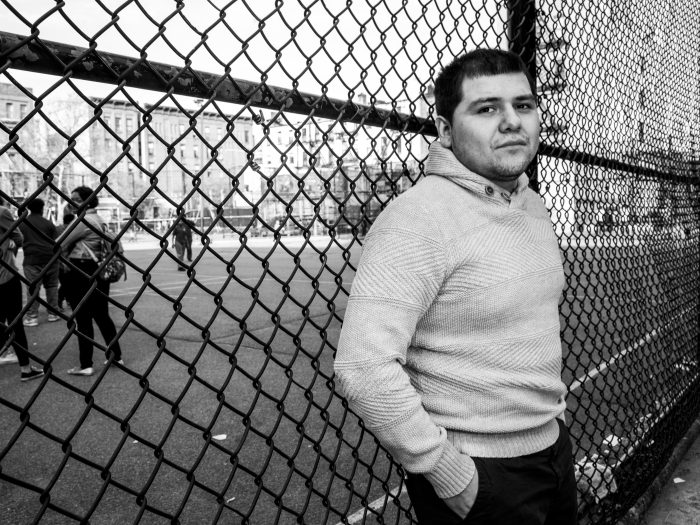
Photo by Nathaniel Shannon
As I briefly mentioned earlier, Rikers has a reputation for being a den of corruption and violence. In fact, it has a sordid history of prisoner neglect and abuse and is almost too long to even really get into here. But one situation that really grabbed my attention while preparing for this interview was “The Program,” which was essentially a Correction Officer-sanctioned group of inmates who enforced their rules on other inmates through violence. And while convictions have been made in various cases, there has always been this lingering rumor that it still occurred.
Rodrigo: All of that is true. And it still happens. Let’s put it this way: I once told a guard that if he would bring me Popeye’s Chicken for lunch, I’d beat up whomever he wanted. If you want something, you’re gonna have to give me something. That’s how jail and prison works. The guards are there to control the unit. And there’s only so many of them. If they take an Alpha Male and put him in charge of a unit, everybody is going to listen. It makes the guard’s job that much easier.
Were you ever exposed to a situation or witnessed a moment where this kind of thing happened and was swept under the rug?
Rodrigo: Absolutely. There was this one really small, puny kid. The guard ended up lumping his face up pretty bad to the point where he had to go to the nurse. His face was just messed up. After I left Rikers and went upstate, I heard that the kid was suing the jail and the Corrections Officer. There was an internal investigation, and I was pulled from prison to come testify about what I saw. But I couldn’t say anything. Because once I did, that would put a target on my back for the guards and my fellow inmates.
For those that haven’t been to jail or prison, specifically one that is as notorious as Rikers, the threat and fear of violence from inmates, I would imagine, would be their biggest concern. Over the year that you were there, what was the climate like between the inmates? Was there an established pecking order between those that would use the threat of violence to get what they want?
Rodrigo: You have to be violent. The officers weren’t always going to be there, nor did they really defend you. When I first got in there, I was the only Hispanic guy in the unit. Once more Hispanics started coming in, I pulled them onto my side. You have to stick with your own. Blacks stayed with Blacks. Hispanics with Hispanics. The white guys were neutral as there weren’t a lot of them at Rikers. There were a lot of fights that were based just off of race. For example, the Mexicans in Rikers were notorious for having bangers – shanks – and being very violent. The Dominicans were typically large guys, so they always stuck together. If you walked into a dorm and you were the only Hispanic guy, you’re going to have a hard time.
The first fight I ever got in there was over the phones, if I’m not mistaken. This guy was one of the Alpha Males in the unit. It was in the bathroom, as there wasn’t any cameras there. They had a guy watching out for any officers or my friends to coming in. At that point in time, the Hispanic population had grown and I was one of the guys in charge of them. So yeah, it was really over using the phone. We both really tried to not make it a racial thing. Because once you do that, it spreads to everyone else and other units. That’s when it becomes a bigger problem.
How prevalent were the gangs in Rikers during your stay?
Rodrigo: Man, if you’re not in a gang, you’re not gonna live. As soon as you walk in, somebody is gonna ask you what hood you’re from, what gang you’re from. If you say ‘I’m Blood,’ you have to spit your lingo. Every set has their own lingo, their own phrase. You have to prove your ‘paperwork.’ They want to know that you’re real and not just claiming it. Every race has their own gang, and it was apparent who was who. You pretty much have to be in a game, and if you’re not, you’re a big exception.
Fast forward three months. You’ve been there ninety days. Did you feel acclimated to the system that was placed around you? What was your typical day like?
Rodrigo: Over the three months that I was there, I had already been through three lawyers. I was just trying to fight this and get home. But there comes a point where you just give in. You’re there, and the idea of getting out is gone. One day it just hit me that I wasn’t going home. That I was there for a serious charge. I mean, ninety days isn’t enough time to get used to it. You’re fighting every day. On the days I got to see my family, that was the worst. I had to fight back the tears. I was used to seeing them and my son every day. And now I was looking at initially fifteen years away, and then five to ten years. So it just hurt knowing that I wasn’t going to see them like I did before. That I was going to be there for a while. It forced me to accept that I had to get used to that environment.
For the dorm that I was in, I worked in the kitchen. Breakfast, lunch and dinner. I usually woke up around five in the morning. Typically, your job in the dorm depends on the office. I tried to stay out of trouble while at Rikers and maybe that’s why I was in the kitchen. Or maybe it’s because I can be a little rough with people. If someone wanted extra food and I knew they weren’t supposed to have it, I’d always say no.
From there after breakfast, since I was seventeen at the time, it was mandatory that I had to go to school. So I’d walk over to a trailer where I’d be there from eight till ten-thirty. After that, I’d serve lunch and head back to school to until three. Typically, I’d get about an hour or two break between that and having to make dinner. After that, it’s your time. Watch TV, get on the phone, write your family letters.
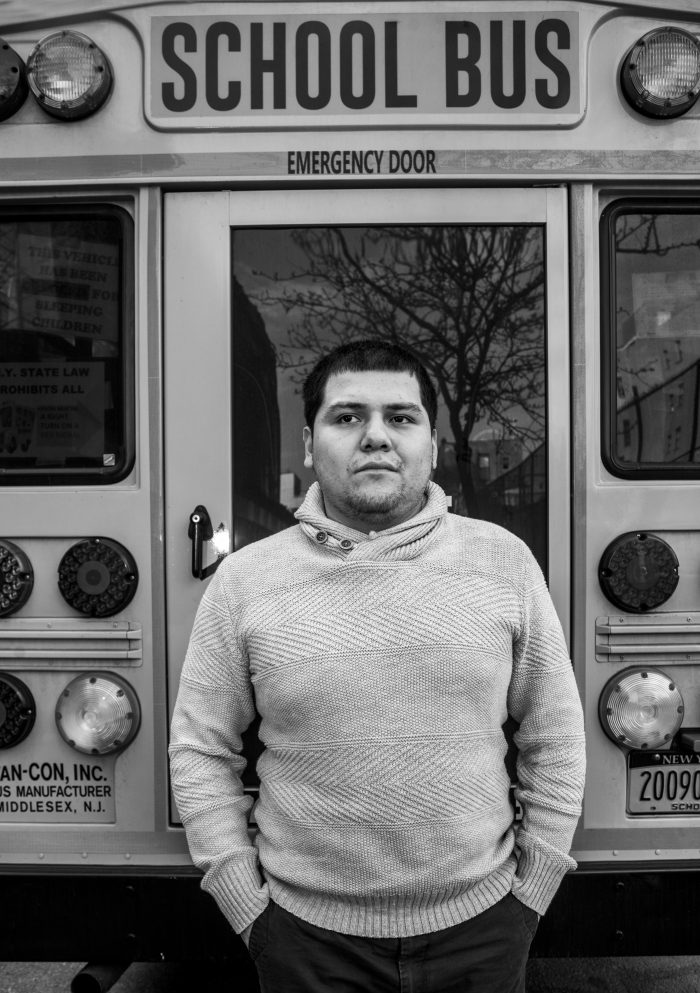
Photo by Nathaniel Shannon
What was the hardest thing to adjust to?
Rodrigo: Being locked away. People don’t understand that being in a cell for that amount of time does things to you mentally. You’re not seeing anyone. You’re in there by yourself. If you don’t have any books or a radio – which you could buy in the prison – you start talking to yourself.
Where you ever put in a segregated unit?
Rodrigo: Yeah, when I was in prison upstate for fighting. They put me in what is called “The Shoe” or the “The Box” for forty-five days.
Twenty three hours a day. No contact with anyone outside of the guards correct?
Rodrigo: Right. The first two or three days were really bad. I was imagining things. I would be sleeping and swear I could hear music. But when I woke up, there was nothing there. No sound. No TV. Nothing. We’re social creatures. And the fact that they put me – anyone really – away for that amount of time, it fucks with you.
There’s no contact with anyone. The guards slide the food through a little slot in the door and that’s it. If you want to shit or shower, you do it in the cell. It really does a number to you. You start screaming at the door. You start talking to yourself. You’re looking for that connection with somebody else. Just to get a reaction from the guards. Any kind of connection. But you don’t get it. And if you do get some kind of response from the guards, it’s not a good one.
After the year of being at Rikers, you were transferred upstate in order to complete your sentence in prison. Where were you transferred to?
Rodrigo: I was actually at two prisons upstate. I went to Auster, which pretty much served as my intake process until my papers were processed. From there, I went to the Greene Correctional Facility.
Did you have any clue as to the reputations of these two prisons before heading there?
Rodrigo: Greene was called “Gladiator School.” Just the name alone, man. You knew you were gonna have to fight. I can say that my time there wasn’t bad like some people’s. But it wasn’t good. I remember this kid we called ‘Red’ who was getting extorted and molested by another older inmate. His time there was horrible.
When you talk to someone that hasn’t been to jail or prison, there’s always that notion that sexual abuse is a common practice among inmates. From your time there, would you agree with that sentiment?
Rodrigo: The inmates are gonna test you. You’re surrounded my wolves, and if you look like a sheep, it’s gonna happen. It’s prison. The officers can try and control those things, but they can never really be there all the time or see what’s happening around every corner. People are beaten, extorted and molested all the time. It’s really frequent. When you’re there, it’s not something out of the ordinary.
You’ve mentioned Alpha Males, and those that are on the top of the food chain, so to speak. Can you break down the typical social hierarchy in prison?
Rodrigo: Rapists and child-molesters are definitely on the bottom. That’s still true. But prison has changed, though. The population in prisons have gotten much younger, and most of them are in there for gang-related crimes. The prison staff tends to pay more attention to the gangs and what’s going on with them in the prison. They really don’t care what happens to anyone that’s in there for rape or molestation. One time at Rikers, there was this kid who must have been sixteen or seventeen, and was in there for raping a little girl. The minute he walked in and and we found out, we gave him one hell of an ass-kicking. He was on his knees pleading for us to stop, banging on the bubble window – where the guards control the cell – begging to be let out. The officers just turned their back on him. We kept going till they came in and dragged him out and moved him to another block. He was there for less than a day.
What were the main differences between Rikers and the two prisons you were at?
Rodrigo: Upstate, you have to worry more about the Correctional Officers. At Rikers, it was all about the inmates. In prison, most people are just trying to do their time, go home or have ‘retired.’ Upstate, it’s known that that Officers are racist as fuck. There was this one officer who had a tattoo of a little black baby with a noose around his neck. I remember him saying, “You’re in my house. If you hit me, I can get away with murder.” Most of the officers live in the town around the prison. It’s part of their community. They know everyone from top to bottom. So if you get in a fight with them, you’re gonna end up with broken bones – or worse – and put into segregation. The officer is going to get a few days off to rest, and then come back to work. Typically, there’s no internal investigation into an incident. It’s your word against the officers.
At what point during your time at Rikers or in Greene did you want to turn your life around? Was there a moment or a conversation you had where you realized that you needed to turn things around, not just for yourself, but for your son and family?
Rodrigo: Well, I guess getting sentenced after Rikers, I saw it as a blessing. The gang I was in came under a federal investigation for a number of things. Drugs, murder, robberies. If I didn’t get locked up, I could have been involved in a lot worse and looking at a lot more time. My family basically said it was them or the gang. So that really made me stop and think about where I had ended up and what I wanted out of my life. I got my G.E.D. while in prison and took some college classes.
You were facing fifteen years initially for Attempted Murder. What happened that allowed you to only do three and half years?
Rodrigo: I took a plea bargain. Rather than go to trial, I took the plea. Which dropped my charges down from Attempted Murder to Attempted Assault in the First Degree. If I went to trial, I would have done the full fifteen years. The way I looked at it, I could plea out, do the three and half years and have my life back. Fifteen years is a long fucking time. When my lawyer told me that, I initially freaked out. I had payed him twenty thousand dollars to fight this charge. But I stopped and really thought about the time. Three and half years when compared to the full sentence is nothing. I had to take that. I have a son and I didn’t want to miss out on him growing up. If I went to trial, it was a gamble. And I didn’t want to take that risk.
When you were released from prison and got back home, what was the first thing you did?
Rodrigo: I went straight over to see my kid. I hadn’t seen him in almost two years. He didn’t really know me, which was hard. For him, one moment I was there and then I was gone. My baby’s mom broke up with me while I was in Rikers. So seeing her was really hard. I hated her for leaving me like that. But over time, I got over it. We’re in a better place now. Our son is the priority.
Do you ever think that there will be a point where you tell him about being locked up?
Rodrigo: You know what, yeah, but I’m reserving it for the right time. If he follows down the steps I did, yeah. I would definitely sit him down and explain what could happen to him. I still have all my state-issued paperwork. I want to show it to him and stress what could happen. I try and stay on top of him now. Even though he’s young, I’m trying to stress the importance of education to him. On my end, you look at a lot of people in prison, and their fathers were never there. I don’t want that for him. He’s my priority now.
If you wouldn’t have gone to prison, where could you see your life going? Where would you have ended up?
Rodrigo: Dead. My life was so bad. I mean, I got shot in front of my apartment once. There’s no way around it. I would have been dead.
What was your family like when you got out of prison? How did they react to you?
Rodrigo: When you go to prison, it’s not just you that goes in. It’s everyone in your life that loves you that goes in. In a way, time stops for you and everyone else. One minute I was here, and the next minute I was gone. They had to get used to me being back and I had to get used to them being in my life. My family gave me a choice while in Rikers. It was the gang or them. So I really had to take a look at my life and decide what I wanted. As I said, the gang I was in at the time was under a huge federal investigation. So making that decision wasn’t that hard or tough. I just walked away.
When I was sleeping after coming home, if someone walked by the room, I would wake up. I was just so used to that. Some people come home from prison and shower in their boxers. They ask permission to use the bathroom or to eat. They become institutionalized. You can fight it, but you can’t beat it. It’s inside you.
I’m not gonna lie, you become accustomed to it. I miss it sometimes. I dream about it. I mean, you make bonds with people in there. I was so used to being in prison. Even though I’ve been home for three years, I’m still in there. I’m institutionalized, without a doubt. Once you’re in there, you’re in there. But I realize that I’m better then that. I don’t want to be that person. The fast life is fun, but once you hit prison, man, that hits you hard. You’re nothing. You’re just another number going through. That’s all you are.
After all is said and done, what are your thoughts on the American prison system? Is it broken?
Rodrigo: Oh, it’s broken. You have people going to prison for petty crimes. People that don’t have money to hire a lawyer to get proper help. They get passed off to Public Defenders and these lawyers already have a shitload of cases. And it’s apparent that these attorneys don’t care. They don’t have the time, the money, nor the resources to help people. We’re just setting them up to fail. You have guys going in there for marijuana possession and getting one or two years, and a majority of those people are African-American or Hispanic. I’m sorry, but you’re more likely to get stopped and arrested if you’re one of those two groups as opposed to being a white person. The prison system is a business. That’s all there is to it. There are so many young people that go into that system and before you know it, they’ve been in and out for twenty or thirty years of their life.
I can’t vote until I’m off probation. New York is actually one of the states that allows a convicted felon to vote after they’ve completed parole. But a lot of states won’t allow you to, ever. I think that’s another way of keeping minorities down. If you give every minority you catch a felony, that’s a lot of people who can’t vote. Their voices can’t be heard.
With me being home and back in Harlem, it’s hard for people to believe that I’m trying to be a good person. That I’m trying to raise my son. I work my ass off. I try to get involved with the community and other projects. It’s hard for some people to accept that once you’re a felon, you can change. That not everyone will always be a bad guy or whatever. I mean, some people leave prison and come home and get right back into trouble. But not everybody is like that. People can and do change.
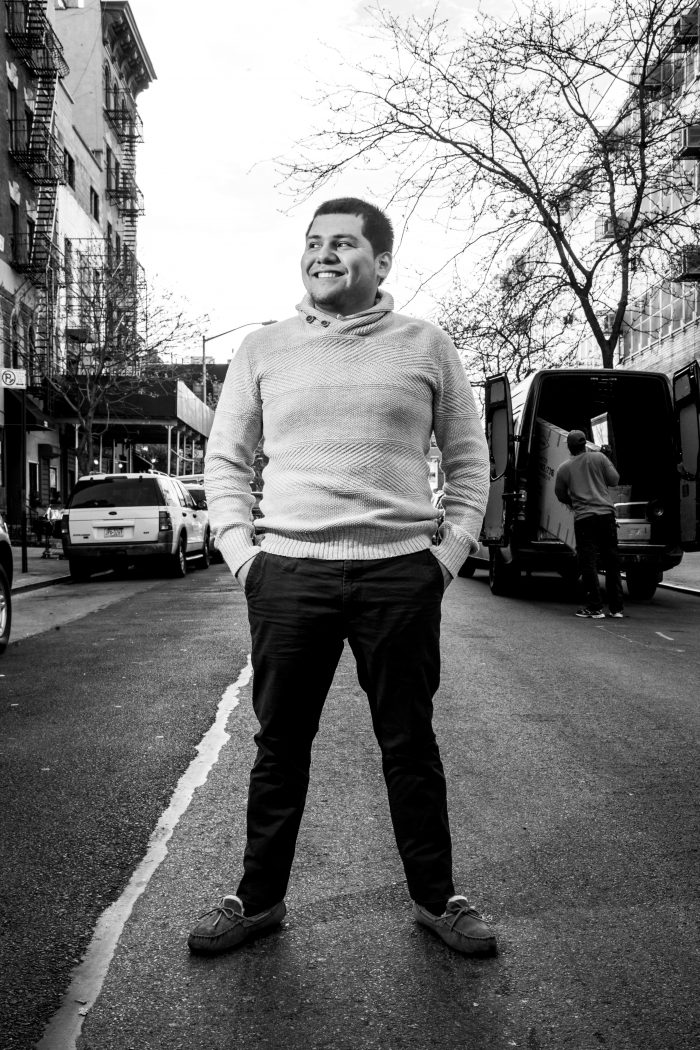
Thank you so much for the interview Rodrigo!

